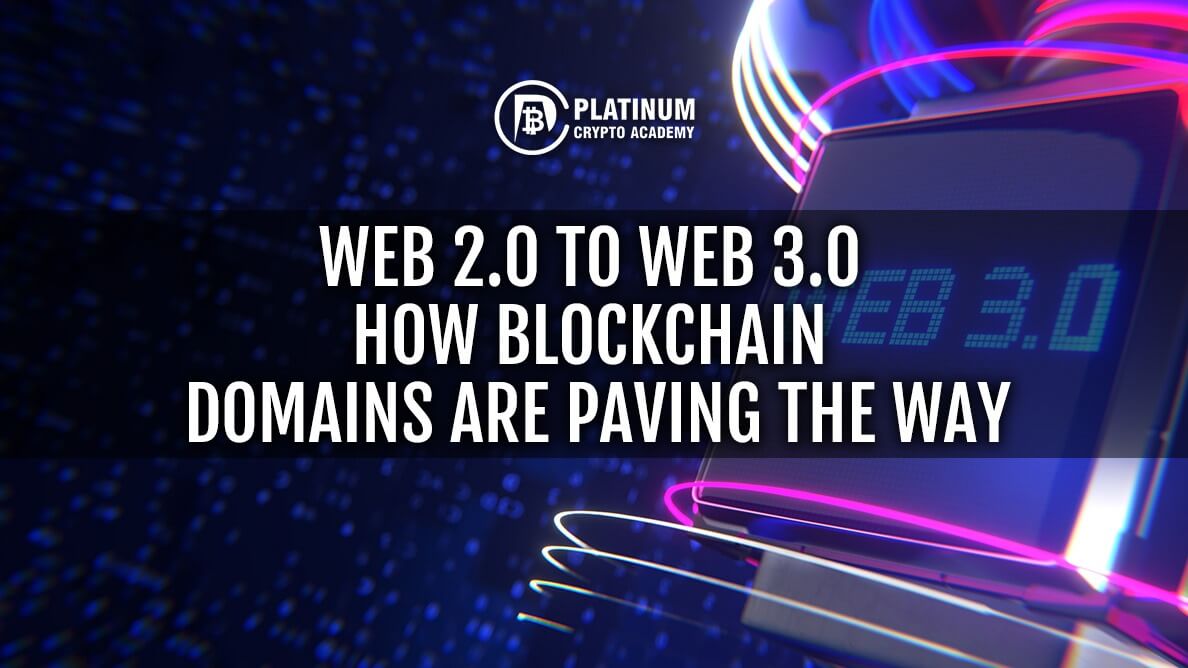Quick Links
Welcome back, crypto comrades! We’ve been on quite a journey, exploring the world of blockchain domains. We’ve met the titans of this space: ENS, Unstoppable Domains, and BNS. We’ve seen how they’re simplifying crypto transactions and building un-censorable websites. But now, it’s time to take a step back and look at the bigger picture. How are blockchain domains contributing to the shift from Web 2.0 to Web 3.0? Let’s dive in!
Web 2.0: The Internet of Today
Web 2.0, the current version of the internet, is characterized by user-generated content and the growth of social media. It’s the internet of Facebook, Twitter, and YouTube. But while Web 2.0 has brought us many benefits, it also has its drawbacks. Centralization is a major one. Large tech companies control vast amounts of data, leading to concerns about privacy and censorship.
Web 3.0: The Internet of Tomorrow
Enter Web 3.0, the next generation of the internet. Web 3.0 is envisioned as a decentralized and user-centric online world. It’s built on blockchain technology, which allows for peer-to-peer interactions without the need for intermediaries. In Web 3.0, you control your own data. You’re not just a user; you’re a participant in a global, digital ecosystem.
Blockchain Domains: Bridging the Gap
Blockchain domains are a key part of this transition from Web 2.0 to Web 3.0. They offer a decentralized alternative to traditional DNS, putting control back in the hands of users. As we’ve seen in our previous articles, blockchain domains can be used for crypto transactions, decentralized websites, and more.
But blockchain domains aren’t just about replacing old systems. They’re about creating new possibilities. With blockchain domains, you can have a truly decentralized online identity. You can interact with decentralized applications (dApps) in a seamless way. You can even create and host your own dApp, opening up a world of opportunities for innovation and creativity.
For instance, Unstoppable Domains allows you to build decentralized websites that can’t be taken down or censored. This could be a game-changer for businesses and individuals alike, offering a new level of freedom and control over online content.
ENS, on the other hand, offers a secure and decentralized way to address resources both on and off the blockchain using simple, human-readable names. This could simplify the process of sending and receiving cryptocurrencies, making it more accessible to everyday users.
And let’s not forget BNS, which offers a unique value proposition for Bitcoin enthusiasts and users. With BNS, you can have a Bitcoin-based domain name, leveraging the security and popularity of Bitcoin while also enjoying the benefits of a blockchain domain.
Case Study: Brands Embracing Web 3.0
As we delve deeper into the Web 3.0 era, several brands are already making strides in this new frontier. Let’s take a look at some examples of brands that are embracing blockchain domains and the Web 3.0 revolution.
Fashion Brands: Gucci and Burberry
Fashion brands like Gucci and Burberry are showing interest in Web 3.0, exploring the potential of blockchain domains and NFTs. They are keen on leveraging the unique opportunities that Web 3.0 offers, such as enhanced customer interaction, secure transactions, and the potential for unique digital offerings.
Amazon, Starbucks, and Coca-Cola
According to a Forbes article, crypto domain names like amazon.eth, starbucks.bitcoin, and coke.dao have been registered. While it’s not clear whether these brands themselves registered these domains or third parties did so, it shows the growing interest in blockchain domains. It’s worth noting that owning a blockchain domain doesn’t necessarily mean the brand endorses or is actively involved in the crypto space. However, it does highlight the potential of these domains as a new form of digital asset.
Brand Names in Blockchain Domains
A report by the DNS Research Federation highlighted that registrants are registering domains for multiple brands and trademarks in the blockchain domain space. While it’s still early days for blockchain-based naming systems, the data suggests that brand owners should pay attention to this technology. The report found that many of the registered domains are quite “phishy,” indicating potential for abuse in this space. Despite this, only a small percentage (0.23%) of registered blockchain domain names contained one of the 12 brands they searched. This suggests that while the percentage is low, the potential impact on users could be severe.
Crypto Domains in 2023
According to AIMultiple, crypto domains are gaining popularity, with the “.eth” domain having more than 1.4 million names registered. They predict that Web3 domains will eventually use crypto domains. Crypto domains are NFTs that function as universal addresses for crypto wallets and websites. Unlike traditional domains, crypto domains are not stored in a server; they are stored in a blockchain.
These examples illustrate how brands are beginning to understand and leverage the potential of blockchain domains in the transition from Web 2.0 to Web 3.0. As more brands embrace this technology, we can expect to see a significant shift in how businesses operate online, offering exciting new opportunities for investment and growth in the crypto space.
The Road Ahead
The shift from Web 2.0 to Web 3.0 is a journey, and we’re still at the beginning. But with each new blockchain domain registered, with each new dApp built, we’re taking another step forward. Blockchain domains are more than just a cool tech innovation. They’re a sign of the internet’s potential, a glimpse of the Web 3.0 world to come.
So, whether you’re an Ethereum enthusiast, a Bitcoin believer, or just a curious crypto newbie, there’s a place for you in this journey. Grab your blockchain domain, and let’s pave the way to Web 3.0 together!
Hopefully, you have enjoyed today’s article. Thanks for reading! Have a fantastic day! Live from the Platinum Crypto Trading Floor.
Earnings Disclaimer: The information you’ll find in this article is for educational purpose only. We make no promise or guarantee of income or earnings. You have to do some work, use your best judgement and perform due diligence before using the information in this article. Your success is still up to you. Nothing in this article is intended to be professional, legal, financial and/or accounting advice. Always seek competent advice from professionals in these matters. If you break the city or other local laws, we will not be held liable for any damages you incur.


